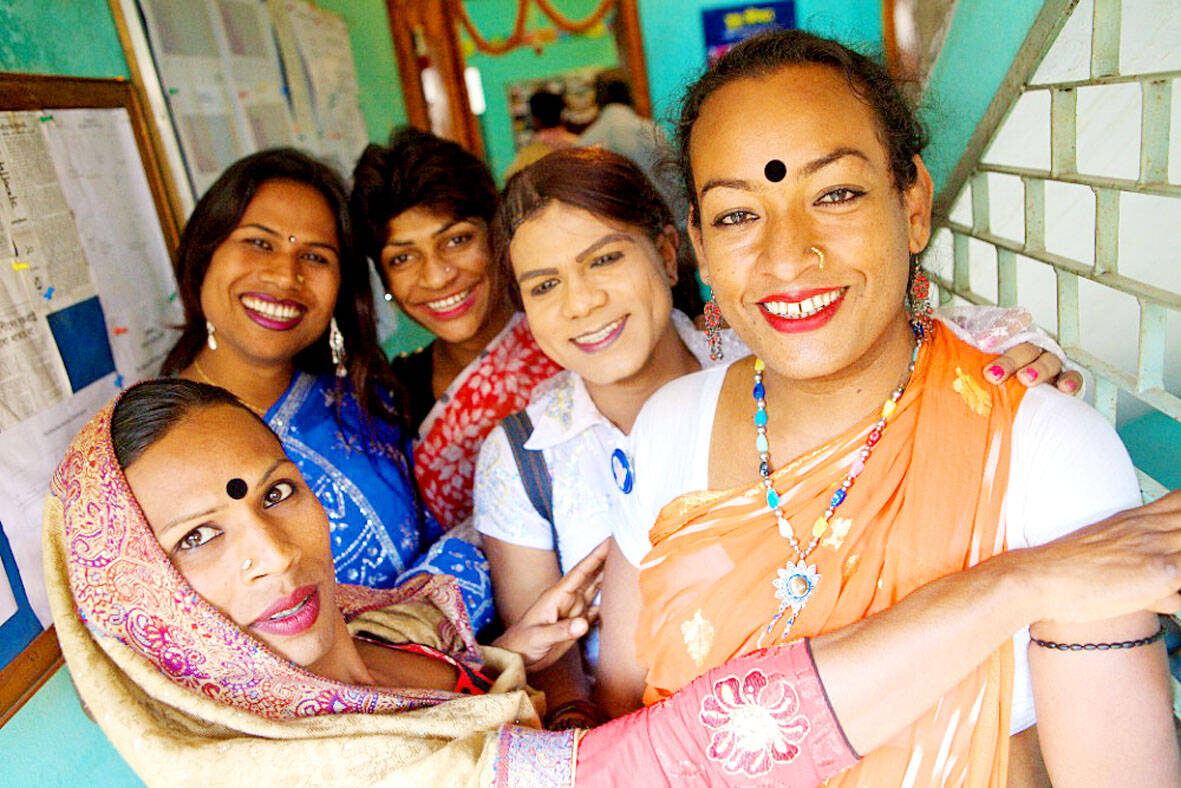Wearing bright saris and heavy make-up, many of Bangladesh’s transgenders, or hijras, spend their days begging from people stuck in traffic and shopkeepers who give them small change in exchange for lucky blessings.
The government recognized hijras as a third gender in 2013, but they remain marginalized in a country where sexual activity between people of the same sex is illegal. Many hijras live in abject poverty and have no opportunity for a proper education, much less a job. Many are forced to beg or engage in sex work to survive.
But on Jan. 1, new textbooks were rolled out for millions of schoolchildren between the age of 11 and 13 featuring a segment on transgenders.

Photo courtesy of Wikimedia Commons
The textbook contains images of transgenders in respectable jobs, including a beautician, a development worker and an elected mayor, and the fictional story of a child who transitions, takes a female name and goes to live with a transgender community.
The creators of the book hope it will help nurture acceptance.
“We have piloted it in very small areas, and we got a very positive result, response from our students, because it was a completely unknown matter to them. It is new knowledge for them and they accepted it very well,” said Muhammad Moshiuzzaman, a member of the National Curriculum and Textbook Board.
“I think they are human beings just like us. We came to know about them by learning from the book, we think we should help them with their progress,” said Fatiah Alam, 12, a student at Gomail High school on the outskirts of the capital Dhaka, one of the schools that uses the new textbook.
Officials estimate there are about 10,000 hijras in Bangladesh but rights groups say the figure could be as high as 1.5 million in the country of 170 million people.
The textbook has not been welcomed by everyone. A large crowd of conservative Muslims angered by the inclusion of hijras recently held a protest at Dhaka’s main mosque calling for the textbook to be recalled.
Nevertheless, the transgender community and their supporters are hopeful that the textbooks will spread awareness and in turn help improve their status in society.
“If our story catches people’s attention and they keep our suffering in mind, that will be good for us. Those who learn more about us will hopefully understand and then work towards our development in the future,” transgender community leader Jonak said at her office in Dhaka.

The canonical shot of an East Asian city is a night skyline studded with towering apartment and office buildings, bright with neon and plastic signage, a landscape of energy and modernity. Another classic image is the same city seen from above, in which identical apartment towers march across the city, spilling out over nearby geography, like stylized soldiers colonizing new territory in a board game. Densely populated dynamic conurbations of money, technological innovation and convenience, it is hard to see the cities of East Asia as what they truly are: necropolises. Why is this? The East Asian development model, with

June 16 to June 22 The following flyer appeared on the streets of Hsinchu on June 12, 1895: “Taipei has already fallen to the Japanese barbarians, who have brought great misery to our land and people. We heard that the Japanese occupiers will tax our gardens, our houses, our bodies, and even our chickens, dogs, cows and pigs. They wear their hair wild, carve their teeth, tattoo their foreheads, wear strange clothes and speak a strange language. How can we be ruled by such people?” Posted by civilian militia leader Wu Tang-hsing (吳湯興), it was a call to arms to retake

This is a deeply unsettling period in Taiwan. Uncertainties are everywhere while everyone waits for a small army of other shoes to drop on nearly every front. During challenging times, interesting political changes can happen, yet all three major political parties are beset with scandals, strife and self-inflicted wounds. As the ruling party, the Democratic Progressive Party (DPP) is held accountable for not only the challenges to the party, but also the nation. Taiwan is geopolitically and economically under threat. Domestically, the administration is under siege by the opposition-controlled legislature and growing discontent with what opponents characterize as arrogant, autocratic

When Lisa, 20, laces into her ultra-high heels for her shift at a strip club in Ukraine’s Kharkiv, she knows that aside from dancing, she will have to comfort traumatized soldiers. Since Russia’s 2022 invasion, exhausted troops are the main clientele of the Flash Dancers club in the center of the northeastern city, just 20 kilometers from Russian forces. For some customers, it provides an “escape” from the war, said Valerya Zavatska — a 25-year-old law graduate who runs the club with her mother, an ex-dancer. But many are not there just for the show. They “want to talk about what hurts,” she